CBD Oil vs. CBD Capsules
Summarize
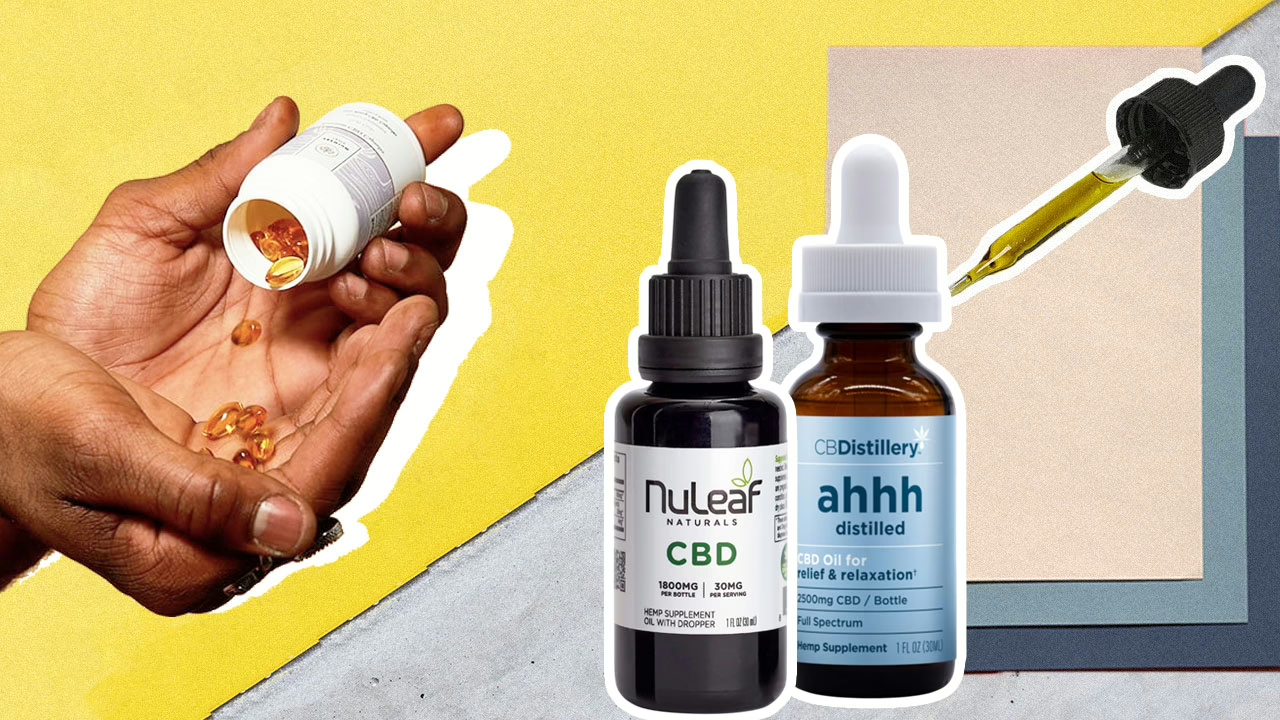
The CBD market is booming as the variety of products increases and consumer awareness of the benefits increases. The two most popular products are capsules and oils. While each product contains CBD, some differences may influence your choice. Knowing how to choose between these products is crucial for maximizing the benefits of CBD and other compounds from the hemp plant.
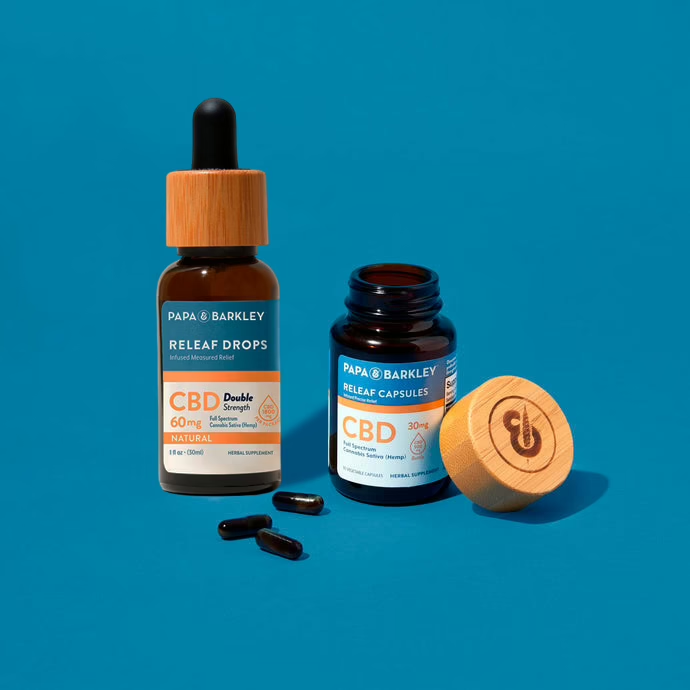
TL;DR (Too Long; Didn’t Read):
Key differences between CBD oils and capsules are that oil acts faster and has a higher bioavailability when taken sublingually. Capsules have longer-lasting effects and pre-measured doses. Each product contains additional ingredients for targeted benefits, such as sleep support or improved focus. Monitoring total CBD intake is essential, no matter what product you take.
Table of Contents
What is CBD Oil?
CBD, one of more than 140 identified cannabinoids in the hemp plant, is a safe and non-psychoactive compound. The hemp plant, a cannabis plant strain, produces no more than 0.3% THC per pound of dry weight plant material, making it federally legal and safe for use in any CBD product per the 2018 Farm Bill Act. This amount of THC in a CBD product will not produce any psychoactive effects, ensuring a safe and enjoyable experience for users.
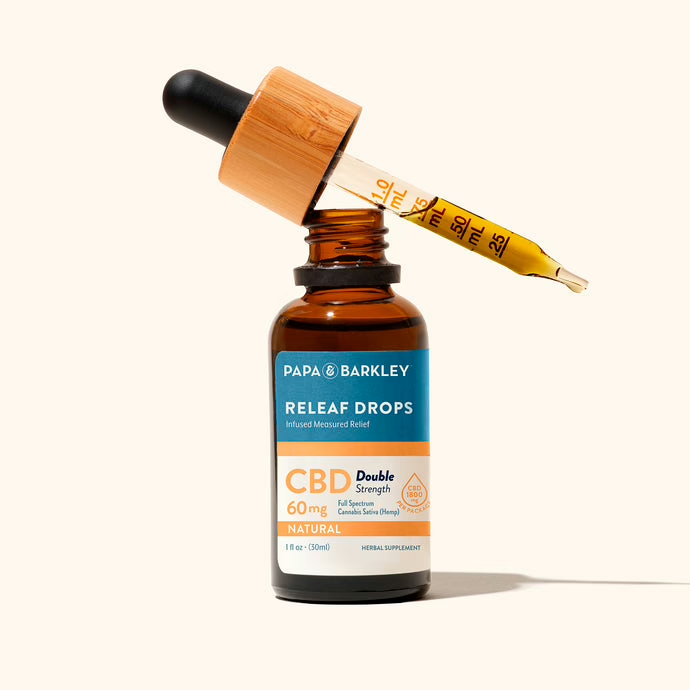
The hemp plant contains more of the non-psychoactive CBD (cannabidiol) than the psychoactive THC (tetrahydrocannabinol). It also includes a wealth of other cannabinoids, including CBG and CBN, terpenes, and flavonoids. CBD oil is extracted from the hemp plant using a meticulous process, such as ethanol or CO2 extraction. This ensures the purity and quality of the final product, providing users with a high-quality CBD experience.
CBD oils may have additional ingredients:
- Coconut MCT, hempseed oils
- Additional amounts of CBD, CBN, CGG, and other cannabinoids
- Natural flavoring or added natural flavorings like strawberry, chocolate mint, hibiscus, etc.
- Ingredients that support effects like melatonin, valerian, and lemon balm for improved sleep, vitamin D3 for immune support, ashwagandha and rhodiola for mood improvement, etc.
CBD oil is taken orally (swallowed) or sublingually, when placed under the tongue. CBD oil typically comes in a dark-colored glass bottle. You’ll get a certain amount of CBD at a certain potency level. The included dropper will allow you to accurately measure the amount of product that you are interested in taking.
What Are CBD Capsules?
CBD capsules are made with CBD extract in all three spectrums encased in a shell. There are two types of shells: gelatin shells and pectin shells. Pectin shells are made from fruit and vegetable extracts, making them ideal for vegans. Gelatine shells are made from animal collagen. Some softgel shells may be made of cellulose, a plant fiber.
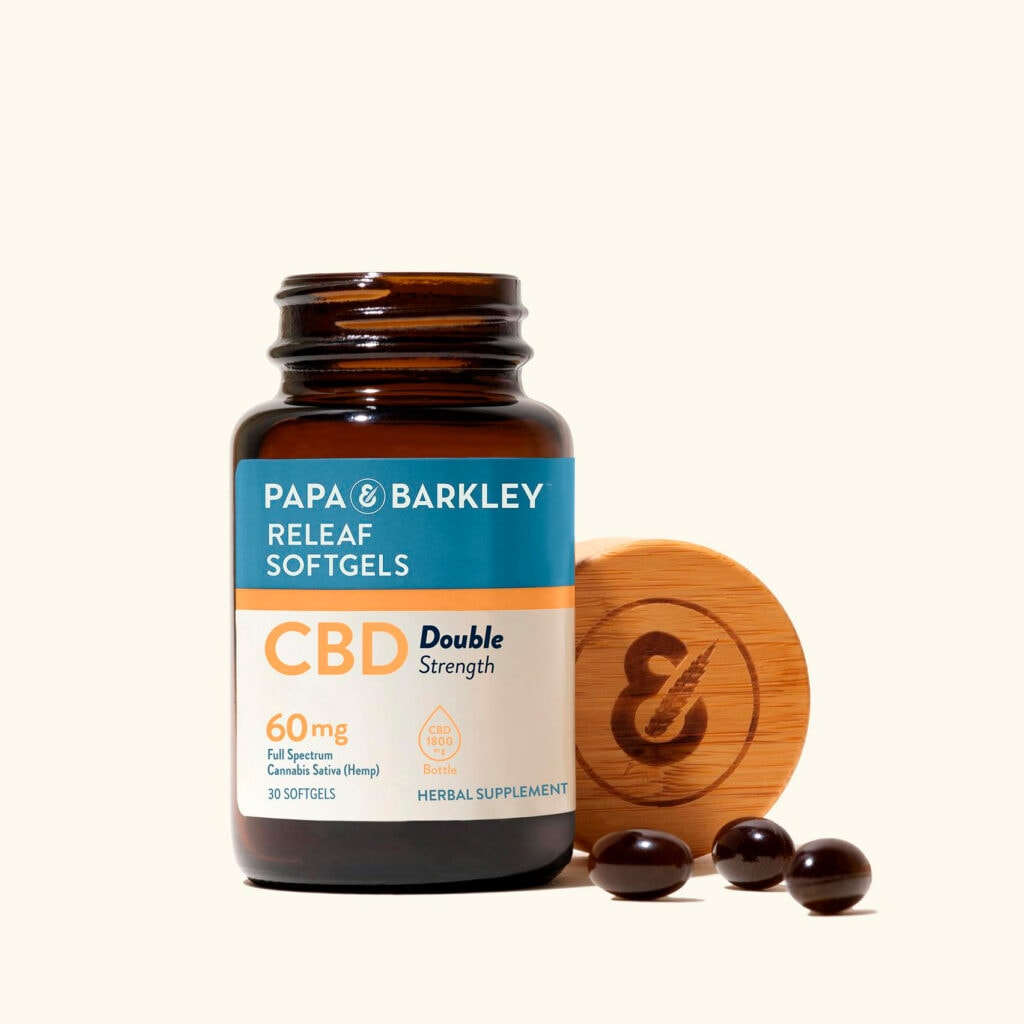
Some features of the various CBD capsules include the following.
- CBD oil with coconut MCT oil or dry CBD extract
- Available as CBD softgel capsules
- Available as non-GMO, gluten-free, lactose-free, kosher, and vegan
- Ingredients supporting effects include L-tyrosine for enhanced focus, gingko extract, ginseng root to help fight fatigue, turmeric curcumin to help manage occasional swelling, etc.
- Available in different CBD potencies, ranging from 10 to 200 mg per serving.
CBD Oils vs. Capsules: Which is Most Common?
Almost half of CBD consumers prefer oils and tinctures, followed by 18% choosing capsules and tablets. Some consumers use both oil and capsules to fit different circumstances.
Numerous studies have shown that CBD in any product may provide various benefits. They include sleep support, better focus, improved energy, and general wellness. Medical claims are not allowed because CBD is not government-regulated yet, but consumers can rely on clinical studies and consumer reviews to help them choose the best products.
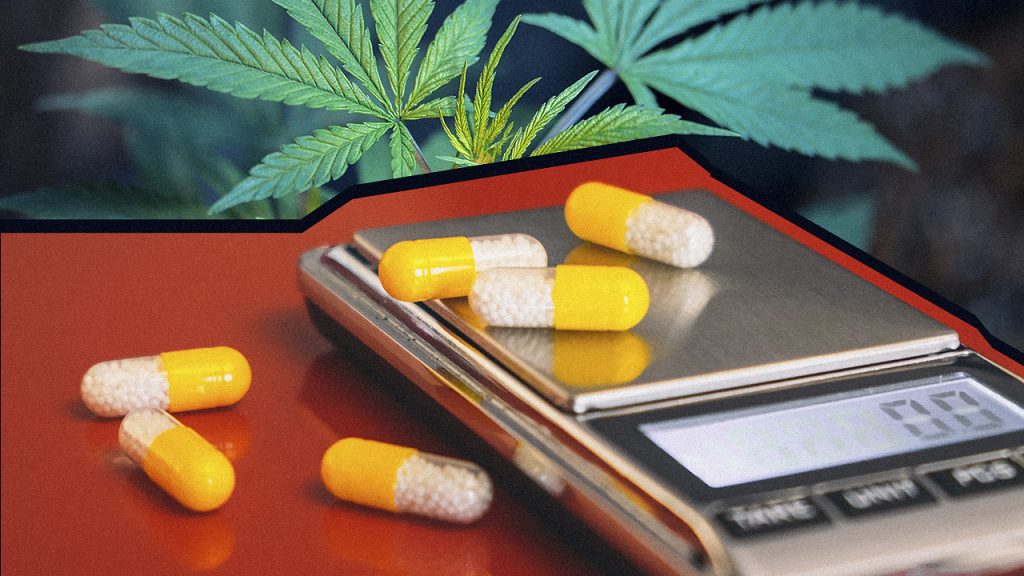
Oils vs. Capsules: What are the Differences?
When comparing CBD oils vs. capsules, there are some differences to keep in mind when deciding which product form to use.
➥ Form
CBD oils are packaged in bottles with a dropper. Сapsules are individual units with a pre-measured amount of CBD.
➥ Ease of use
CBD capsules are easier to use than oils. They are also more discreet and easier to carry.
➥ Taste
CBD oil without flavoring has an earthy, bitter taste. Capsules are flavorless because they are swallowed whole.
➥ Aroma
CBD oil may have an aroma, and capsules do not, since the extract is encased.
➥ Bioavailability
CBD oil has a higher bioavailability when taken sublingually because it is absorbed through the membranes in the mouth. However, some CBD is lost through the digestive system after taking a capsule.
➥ Onset speed
Oil works faster, especially if taken sublingually, because it enters the bloodstream more quickly. A capsule goes through the first-pass metabolism in the digestive system before CBD reaches the bloodstream, slowing down the onset of effects.
➥ Duration of effects
Since CBD oil consumed orally or sublingually is quickly delivered to the bloodstream, the effects do not last as long as those of CBD capsules. The capsules go through first-pass metabolism and breakdown in the liver before entering the bloodstream. However, when considering capsules vs. oil effectiveness, both are effective because they contain CBD. A better way to measure the efficacy is to evaluate product features like CBD spectrum, potency, and additional ingredients.
➥ CBD measurement
CBD capsules contain a pre-measured amount of CBD oil administered via a dropper. Though the dropper has unit markings, the dosage will likely vary slightly between doses.
➥ Use
CBD oil can be added to foods and beverages. CBD capsules would need to be broken open to use in ways other than swallowing.
Softgels are a type of capsule. They have a CBD oil content. However, when comparing softgel vs. tincture, the softgel must go through the digestive system, so it has a more extended onset than the tincture taken sublingually. That information will affect which type of CBD product you take. For example, deciding between softgel or tincture for sleep, the softgel effects will last longer than the tincture. You can take a softgel one or two hours before bed to promote calm and better sleep.
CBD oil vs. CBD Capsules&Pills
| Feature | CBD Oil | CBD Capsules |
|---|---|---|
| Form | Liquid in a dropper bottle | Softgels or hard capsules |
| How It’s Taken | Sublingually (under the tongue) | Swallowed like a regular pill |
| Onset Time | Faster: 15–30 minutes | Slower: 45–90 minutes |
| Duration of Effects | 4–6 hours | Up to 8 hours |
| Dosage Control | Flexible: you can measure your own dose | Fixed dose per capsule |
| Ease of Use | Requires more attention and effort | Very convenient, though softgels may be difficult to swallow |
| Taste | May have a natural hemp taste | Tasteless |
| Beginner-Friendly? | Might be tricky to dose at first | Yes, very easy to take |
How to Increase CBD Product Bioavailability?
What is the best way to take CBD oil or capsules? Bioavailability is the extent to which CBD is absorbed into the bloodstream. There are several ways to increase the bioavailability of CBD products.
➥ CBD is fat-soluble, meaning it is better absorbed with fats. You can take CBD with high-fat food to significantly increase absorption.
➥ Take your CBD oil sublingually. CBD is absorbed directly into the bloodstream by placing a dose under the tongue, bypassing the digestive system, specifically the liver. This is the fastest way to feel the effects of CBD. Taking CBD oil sublingually has a higher bioavailability of 12-35% compared to the 9-13% bioavailability of CBD taken orally in capsules, pills, or tablets.
➥ When taking CBD oil sublingually, hold drops under the tongue for at least 30-60 seconds to allow maximum absorption.
➥ Consume a higher CBD potency product. The more CBD you consume, the more CBD is absorbed. Another option is to increase the CBD dose, i.e., take two CBD capsules instead of one.
CBD oils vs. Pills: What is the Best Way to Take CBD?
If interested in the fastest-acting CBD, take the oil sublingually. CBD is absorbed through the mouth’s membranes and has a higher bioavailability than capsules.
The effects of oil taken sublingually begin within 10-30 minutes. However, since CBD is absorbed quickly, the effects will not last as long as those of capsules. The onset of the effects of taking capsules is 1-4 hours. While sublingual ingestion of oil lasts 1-3 hours, the effects of capsules last 4-12 hours. Factors like your metabolic rate and weight influence these times.
Is it Safe to Mix Oils and Capsules?
It is generally safe to mix oils and capsules. Some people use both CBD product forms to fit different daily needs. For example, you can take a dose of CBD oil in the morning to enhance focus and energy, and a CBD capsule in the evening to help you unwind slowly.
You may also use CBD oils and capsules in tandem to customize a dose. For example, a capsule contains a precise amount of CBD, and you can add a dose of oil to increase the amount of CBD.
If you mix oils with capsules, remember that both products contain active CBD. You should keep track of the amounts taken and note the effects. Though considered safe, everyone responds differently to cannabidiol. There is the potential of taking too much CBD and experiencing one or more side effects, like drowsiness or lightheadedness.
Oil or Capsule: A Matter of Meeting Needs
The choice between CBD oil and capsules depends on your needs and preferences. CBD oil is popular because it offers flexible dosing by drops and is more bioavailable. CBD capsules are convenient, and the CBD dose is pre-measured.
You can start with oil and add capsules for convenience. Another option is to take oil during the day and capsules before bedtime, as capsules are more effective over a longer period. When considering the product for beginners, capsules might be the best choice because they come with a pre-measured amount of CBD. These are just a few suggestions. If you are a beginner, be sure to talk to your doctor before taking CBD in any form.
Share this post


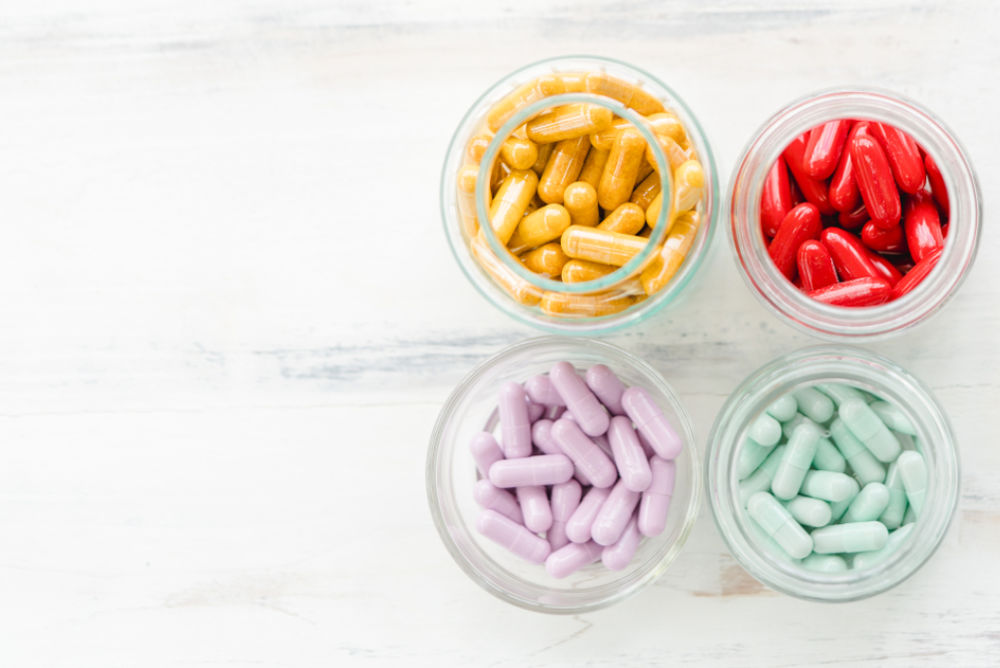
0